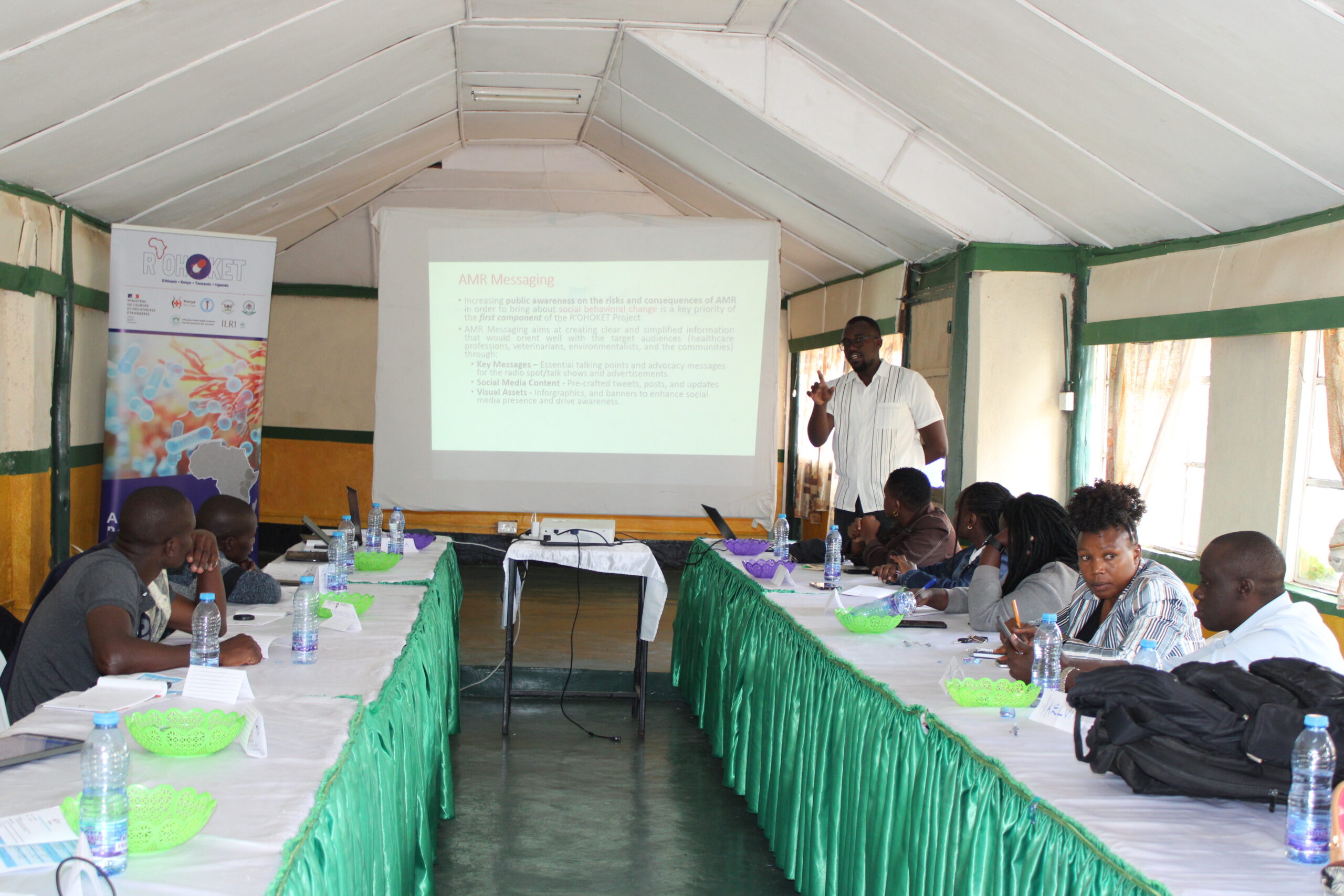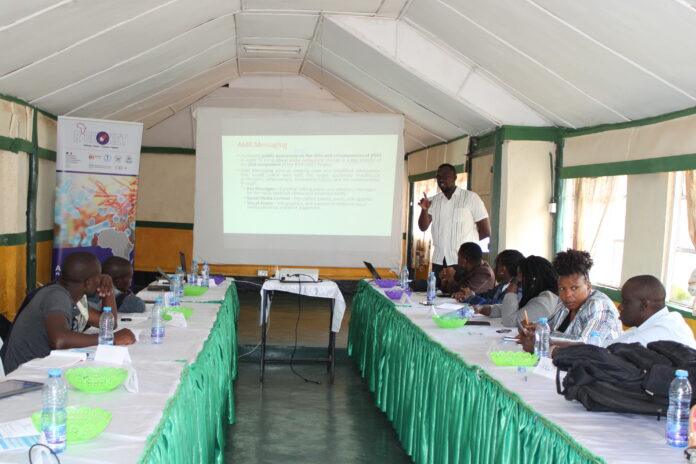By Seline Nyangere
Narok County, Kenya: A recent forum that happened in Kajiado County trained journalists on how to report on Antimicrobial Resistance ( AMR). During the media sensitization, Kajiado County Media Association chairman, Peterson Githaiga said that he did not know much about AMR, and through the forum, he is now confident that he will give the public the correct report.
“As a media personnel, there are things I did not know about antibiotics. I used to buy drugs over the counter, take them twice, and leave it at that point but starting today I will follow the doctor’s instructions and visit the hospital when I feel unwell, I have been taught to finish all my doses, and avoid sharing drugs information that I will share with my community, “ said Githaiga.
Githaiga commended The Kenya Red Cross for engaging media practitioners from different media houses to educate the public because they are a powerful tool in disseminating information.
“We therefore appreciate the Kenya Red Cross for such training, we used to associate them with disaster management only but today we have also realized that they contribute greatly to the health sector. We are going to educate people from the grassroots about AMR,” added Githaiga.
Supporting Githaiga’s sentiments, Christine Musa from Mediamax said, “By going through this training as media, we are able to give the right report to our communities because, through us, the issue of misuse and overuse of antibiotics can be reviewed and resolved at the same time become understandable to the public,” said Musa.
Apart from sensitization, the media fraternity had an opportunity to grasp vital information on AMR from health experts like Kajiado deputy county director, veterinary services Dr. Melita Lein, and Dr. Jeniffer Njuhigu, Programme Officer AMR at the Ministry of Health.

From her presentation, Dr. Njuhigu said that the improper use of antibiotics in livestock to promote growth and prevent disease can lead to resistant strains that can be transmitted to humans also increased movement of people and goods from one place to another also allows resistant organisms to spread more easily across borders.
Dr. Lein advised the public to be mindful of the use of animal drugs and the withdrawal process.
“What I can advise the public is that animal drugs like tetracycline are the same as that of the human so if you are not keen of the withdrawal, selling people milk that contains bacterial nutrients, will contribute to drug resistance in the body. When you become resistant they become harmful in the body to an extent they fail to work,” advised Dr. Lein.
Despite the high prevalence of Antimicrobial Resistance, there is limited awareness and understanding of the consequences among the public, therefore there is a need to create public awareness of the risks of AMR so as to save lives as it is 100 percent preventable.
Antimicrobial Resistance (AMR) happens when viruses, bacteria, fungi, and parasites stop responding to antibiotics and as a result, the infections become harder or impossible to treat increasing the risk of disease spread, severe illness, disability, and even death of humans, animals and plants
According to the World Health Organization (WHO), without effective sensitization on proper hygiene, sanitation, and infection prevention and control, at least 10 million lives will be lost globally by 2050. Therefore, the maa community, well known for their interaction with livestock needs to be sensitized about the misuse and overuse of antibiotics in both humans and animals as the key drivers of AMR.
In order to save these lives, The Kenya Red Cross in partnership with the County Government of Kajiado, Health Department, has come up with an Antimicrobial Resistance – One Health approach program that they sensitized the media on suitable ways to disseminate correct AMR information to the communities.














